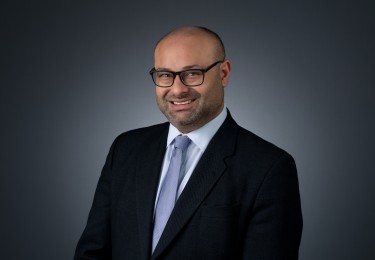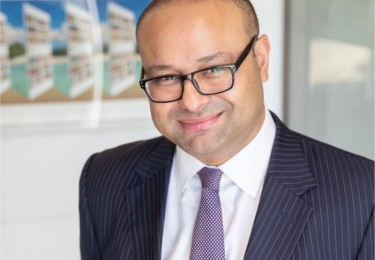
Tackling inequality at its roots
Wealth inequality is driving political and economic instability, but investors and philanthropists have an opportunity to make positive changes
3 min read
The rise of wealth inequality we highlight in our 2018 investment outlook – Investing Through Disruption – has the potential to destabilise trade, economies and our society. Philanthropy and investing in sustainable businesses offer opportunities to mitigate some of the worst aspects of the growing divide.
Our research suggests that globalisation and technological change have brought about changes in the world of work that have exacerbated growing wealth inequality and employment no longer guarantees a route out of poverty. According to research conducted by the New Policy Institute in 2016, 7.4 million people in the UK, including 2.6 million children, are in poverty despite being in a working family – 55% of people in poverty are in working households.
The Joseph Rowntree Foundation’s 2017 UK poverty report found that economic changes have eroded many of the traditional benefits of employment. It found that:
- High housing costs reduce the incomes available for those in poverty to meet other needs
- Rising inflation can have a greater impact for those on low incomes and this squeeze in living standards stores up problems for the future
- A fifth of people on low incomes have problem debt
- Many are not building up a pension
- Increasing difficulty of getting on the housing ladder means that people are more likely to need to rent and have higher housing costs in retirement
Given what appear to be deeply rooted and intractable challenges, what can philanthropists, business owners and investors do to affect change?
Affecting change through philanthropy
Philanthropy has a long tradition of tackling poverty and inequality. Established in 1904, the Joseph Rowntree Foundation, for example, is driven by the founder’s belief that the way to remedy the injustices of this world is not to relieve their ill effects, but to strike at their roots. This sentiment is echoed by many of today’s philanthropists, including many of the 67 philanthropists interviewed for the Coutts Million Pound Donors Report and Million Dollar Donors Report.
Shalni Arora is challenging corruption in global pharmaceutical and healthcare industries to help ensure that the basic healthcare needs of the world’s population can be met. Others are disrupting markets or creating new business models to confront poverty and inequality through social investment or support for social businesses, as in the case of Larry Sullivan, Sir Harvey McGrath or the F.B. Heron Foundation.
To reduce in-work poverty, the Coutts Foundation supports the Living Wage Foundation and its campaign to encourage employers to pay a ‘real’ Living Wage. This is a rate of pay that is independently calculated based on what people need to get by, currently £8.75 per hour and £10.20 per hour in London. Around 3,800 employers have voluntarily become accredited Living Wage Employers.
“Employment no longer guarantees a route out of poverty. In the UK, 7.4 million people, including 2.6 million children, are in poverty despite being in a working family. 55% of people in poverty are in working households.”
But philanthropy alone is not enough to tackle poverty or growing inequality. Indeed, Coutts’ analysis of key trends in philanthropy over the past 10 years illustrates how some wealthy individuals and families are seeking to affect positive change through other means than just their philanthropy. These include the management of their charitable endowments, personal wealth and their own businesses.
Andre Hoffmann, Vice Chairman of Roche Holdings Ltd, for example, explained in his 2016 interview for the Million Dollar Donors Report why it’s important to challenge existing business models. ‘The question is not how you use your business to finance your philanthropy, but how to use your business presence to improve the [social or environmental] outcomes you want to see. It is not about how you spend money, it is about how you make the money.’
So how can mainstream investing address the challenge?
Investing for sustainable returns
Driven by a desire to reduce risk and create more sustainable long-term returns, the rise of responsible investing also touches on questions of poverty and inequality. Considering social, environmental and governance (ESG) factors in investment decision-making and ownership practices shines a light on a number of issues that relate to poverty or inequality and its potential impact on long-term returns.
For example, shareholders have effectively campaigned for companies to pay a ‘real’ Living Wage, and executive remuneration practices are a hot topic for at many companies’ annual general meetings. Analysis by the High Pay Centre suggests the ratio of CEO pay to the average worker has doubled in a little over a decade – from 70x in 2002 to 140x in 2015 – and many shareholders believe that executives have to be aligned with the long-term fortunes of the company. Executive remuneration features in Coutts voting and engagement activity through our relationship with Hermes EOS.

Investing Through disruption
Inequality is a big issue of our times. Most developed economies have become
Become A Client
When you become a client of Coutts, you will be part of an exclusive network.
Other ESG factors that feature in voting and engagement practices include respect for basic human rights, eradication of slave and child labour and the development of a more diverse and inclusive workforce, all of which can help reduce poverty and inequality.
Asset managers are also starting to grapple with the challenge and opportunity of how investing can support the 17 United Nations Sustainable Development Goals (the first of which is to end poverty in all its forms everywhere) and protect long-term financial performance.
Understanding and addressing poverty and inequality at its root is key to making lasting change. The potential to do so through traditional philanthropy and investing presents great opportunities for donors and investors alike.
Joseph Rowntree’s fascinating 1904 Memorandum outlining the considerations that led him to establish three Trusts, including the Joseph Rowntree Foundation, is available in the Coutts publication Perpetuity or limited lifespan - How do charitable foundations decide their longevity? Please contact your private banker if you would like a copy or if you would like to find out more about our award-winning philanthropy services.
KEY TAKEAWAYS
As we have highlighted in our 2018 investment outlook Investing Through Disruption, wealth inequality has risen dramatically in recent decades. Investors have an opportunity to counteract some of the worst consequences through a combination of philanthropy and investing in ways that encourage companies to make decisions that reduce the acceleration in the growing divide between rich and poor.
About Coutts Institute
We understand that wealth means more than money. The Coutts Institute focuses on the governance of wealth - helping family businesses succeed, helping clients fulfil ambitions for their philanthropy, and preparing the next generation for inheritance.
Discover More About Coutts Institute








